An interview with Dee from 2016 by Mark Bowen.
From 1968 to 1979 Jethro Tull enjoyed their classic era. During this period the band benefited from the extensive talents of the composer, conductor, arranger, and multi-instrumentalist Dee (then David) Palmer who now lives close to the Herefordshire border.
After spending a long time as a husband and father, and following the death of his wife Maggie and his mother, Dee made the transition from living as a man to becoming a woman.
If trans issues have never featured more prominently in the world's gaze than they do today, then among those who write songs for a living, there remains a comforting, unblinking acceptance of those whose road is one less-travelled.
"You don’t say ‘Are you black?’, ‘Are you white?’, ‘Are you are Jewish?’, ‘Are you gay?’, ‘Are you transgender?’, ‘Are you Polish?’.
"Musicians don’t do that.
"You go along and say ‘Hi I’m Dee’."
Originally Dee worked with the band as an arranger but by the ‘Too Old to Rock and Roll: Too Young to Die’ tour in 1977, she was playing with the band in concert.
By ‘Songs from the Wood’ (1977) she became a full time studio member, going on to play a vital part in the recording of ‘Heavy Horses’ (1978) and 'Stormwatch' (1979).
Dee finally parted company with Tull in 1980, forming a new group called Tallis. She then returned to the world of film scoring, advertising and sessions.
Dee was asked to make an orchestral album of Tull music. This led on to a series of album releases and subsequent orchestral concert tours featuring the music of Yes, Genesis, and Pink Floyd.
Shortly afterwards, she orchestrated ‘Sgt.Pepper’s Lonely Hearts Club Band’ for EMI at Abbey Road with the Royal Academy Of Music Symphony Orchestra.
More recently Dee recorded an album, 'Norske Popklassikerf' with the London Symphony Orchestra, performing the rock and pop classics of contemporary Norwegian composers earning a gold album for sales in the Norwegian charts in the process.
David, as he was, may have transformed into Dee but the musical journey continues and those incredible musical talents are still in demand. Now she is returning to the stage to perform a concert at the Left Bank in Hereford on July 7.
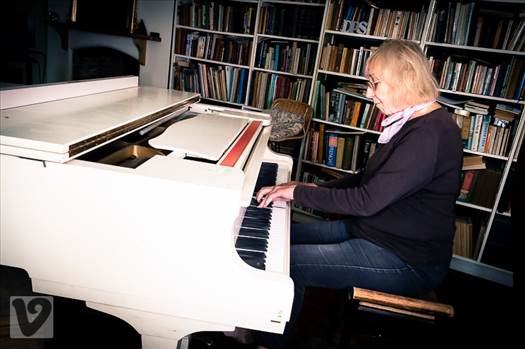
Can you tell us about the concert you are giving at the Left Bank? IMG 3618 2
It came about because I saw a Facebook post about John Bonham’s sister singing there and Robert Plant jumped up on stage and joined in.
I’ve been thinking, whilst I was not going to bring it on in any hurry, I would get back on to the road again singing and playing the piano.
It was suggested we do a gig at the Left Bank to an invited audience largely of people like venue owners and concert promoters to look at what I am doing and think ‘Could this person sell 100/200 tickets?’; ‘Who are the people who would be interested in listening to Dee Palmer singing some old Jethro Tull favourites and the songs she’s been writing?’
Everyone involved is taking a chance. It is a kind of suck it and see. While I am confident in my ability I am certainly not over-confident about what the outcome might be because that is not up to me other than turning in the best performance I can.
If you were to ask me to sum up why I am doing this I would say ‘It’s my drug’. And so the opportunity to go and play in front of people is once again in front of me.
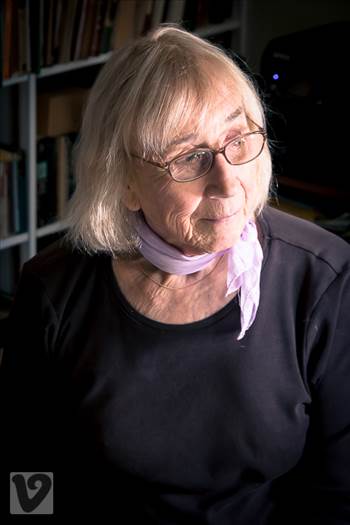
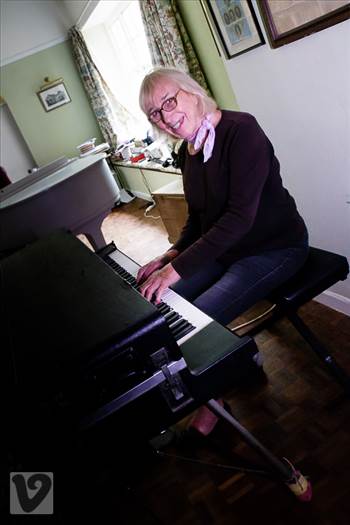
Are you going to talk to the audience about your transition from male to female?
During the course of the songs I have chosen to sing I have plotted how the songs came about, why and where they were conceived, there will be reference in my repertoire to my time in the army, my time in Jethro Tull, my time as a child, and then my time as an adult coping with gender dysphoria without labouring the point, explaining to hopefully a room full of people just what the phenomenon is. As well as having the burden, which it was, of being born intersex and then making my life as a male, there are other issues of transgenderism that I would like to talk about.
I think too much is being made of it. It’s like (asking) ‘Are you a Muslim?’, ‘Are you a Jew?’, ‘Are you a Protestant?’. No. Don’t bother. You go along and say ‘Hi I’m Dee’. You don’t say ‘Are you black?’, ‘Are you white?’, ‘Are you are Jew?’, ‘Are you gay?’, ‘Are you transgender?’, ‘Are you Polish?’. Musicians don’t do that. During my discourse I will point out the logic of the way musicians work.
What is important to them is the central core of their lives – music, not appearances, or beliefs or anything else.
I came into this world with absolute pitch and total recall. I can give you an account of my life since I was three. I am also on the autistic spectrum so if you don’t stop me I will tell you everything I know about everything in the world, so I will be talking about that as well.
What is so good about the prospect of doing this gig is I will be sat there with just a keyboard and there will be an audience there wanting me to entertain them and I will be able to sing them songs that they have never heard before.
I will be singing a Beatles song (‘Things We Said Today’) couched in entirely different terms to the way it was recorded.
I am giving myself every opportunity to win over an audience, gain some positive publicity and be able to go off hopefully from October until Christmas doing a couple of gigs a week or just one.
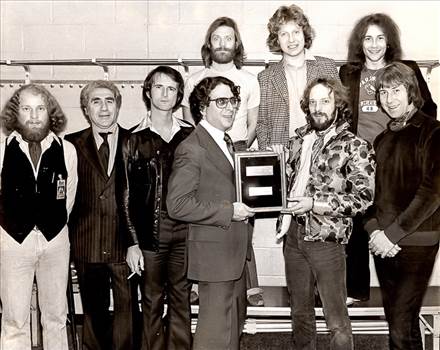
When you made the transition what was the response from Jethro Tull fans?
Those that I heard were non-questioning, non-confrontational. Ian was aware of what was going before anybody else was, other than my doctor, my lawyer, and accountants.
I was living on my own, Maggie had died. My oldest child knew what was going on.
I was in a theatre one night in the West End with a girlfriend going to watch a play and we got there quite early. We were in the bar having a drink and this girlfriend said ‘there is a man over there and he is stripping you’. Suddenly this guy comes round. When he spoke it was in a deep mid-west accent.
He said ‘May I ask you a very personal question?’. I said ‘If it’s about the wine, I can’t really recommend it’. He said ‘Did you used to be David Palmer?’. I said ‘Yes, I did. I suppose I still am really. Why do you ask?’
He said ‘I have seen you so many times. I admire you and your music’. He said ‘You look really good’ and off he went.”
Tell us about your time as a full time member of Jethro Tull between 1976 to 1980.
I started in ’68 (as an arranger). I didn’t just drop into the band because they wanted somebody. I was almost creating my own role without knowing it.
At the end of the first world tour of ‘Too Old To Rock and Roll: Too Young Too Die’ I joined the group as a full time member.
I was aware of why they called me in. The songs we were recording, Ian and I had worked on in the summer of ’76 and we recorded in the autumn of 1976.
That was a learning curve for me. It was not a learning curve more like a rocket trajectory straight up into the atmosphere.
Everything was of the moment. If Martin (Barre) could not play a line after three goes Ian would say ‘think of something else’. It was like a factory line, a production line but always underpinned by Ian’s lyrics and the concept of what the song should be about.
Sometimes in the beginning of my time with Jethro Tull Ian would be asleep in a flight case and I would be teaching the guys in the band the orchestration for this song and (it was) all very exciting. It remained exciting until the last album when I really wanted to leave the band by then.
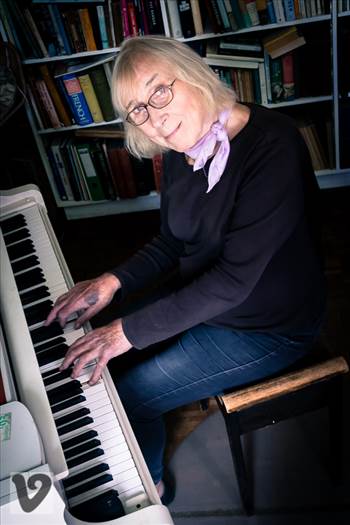
I remember this, being at home ready to go on tour. The Limo came up the drive and I said to my wife Maggie ‘I am not going’. She said ‘put your hat on, go and open the door for the driver and get your cases. Go off and do the tour and when you come back we will talk about you, just don’t do this.’
She said ‘There must be some underlying problem’. I said ‘Yes, I have had enough. I have got to move on from this.’
George Martin said you were the only musician equally at home with rock and classical music that he knew.
There were others. I think I was the one most deeply involved in rock music and classical music because I was writing film scores. I was a ghost music writer at the beginning of my career for a composer whose identity I have swore I would never reveal and I won’t now.
George knew what I was doing in Jethro Tull because he was very friendly with Terry Ellis, our manager.
I did the Genesis album ‘We Know What We Like’. I am very proud of that album.
For George to say that was a very generous utterance. But what I did know was what my work with Jethro Tull had been and what my work was with taking other people’s music and converting it into symphonic terms confidently and then standing in front of the London Symphony Orchestra and saying please play this. And them not walking out of the studio in derision.
When he died I posted something on Facebook saying ‘Dear George, it’s a bit late now but I really want to thank you for the guidance I had.’
Can you tell me about the Jethro Tull album ‘Songs From The Wood’. It’s got a medieval feel to it somehow.
Throughout the album there is a clearly evident reference to things medieval. On 'Songs From The Wood’ instead of using strings we used my synthesisers. Synthesisers are synthesisers- they fake things. However, much you try to convince you can’t really.
The album is deeply rooted in the English canon of folk music.
What is the biggest audience you have played in front of?
101,000 at the Coliseum in LA. My Aunty Mary rang to tell me there were 28 drug arrests. She lived in Wolverhampton and had read it in the Express and Star.
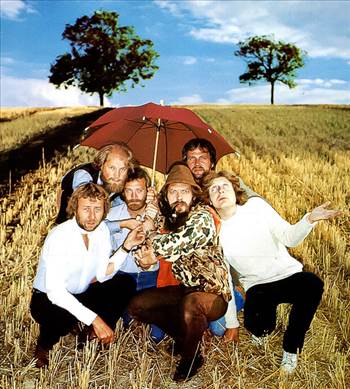
What was it like playing in front of that number of people?
It was a strange event because there were two or three other bands on before us. We were the headliners.
There was just a sea of faces but I was already accustomed to playing to 30,000. It was like the difference between playing football at Wembley or Hereford. It’s the difference between the two things. Both have the same ambient feel and sound but one is much bigger than the smaller one.
You just think what can those people see? What are they getting out of it? What they are getting out of it is what the people at Glastonbury get out of it – they get the thing of being there. It’s being there that matters. It’s being of the moment and so it is for the musician.